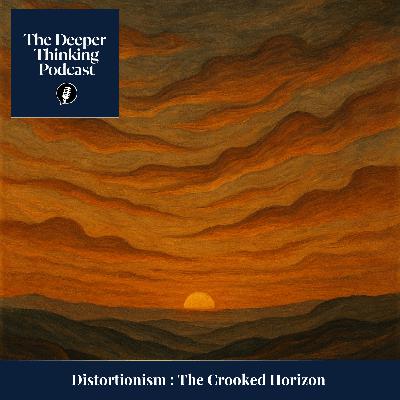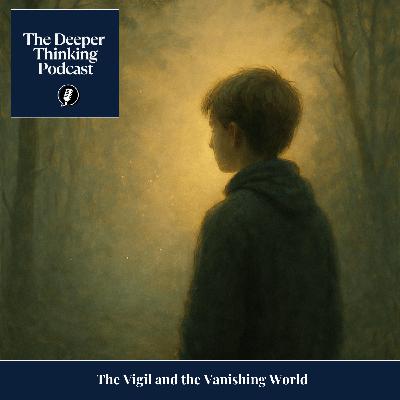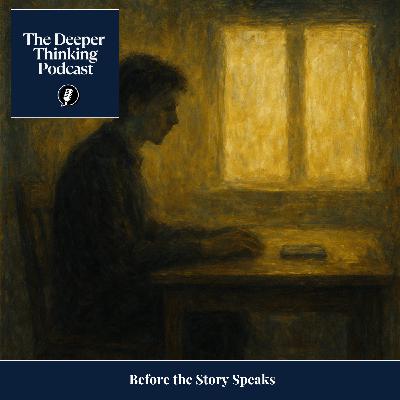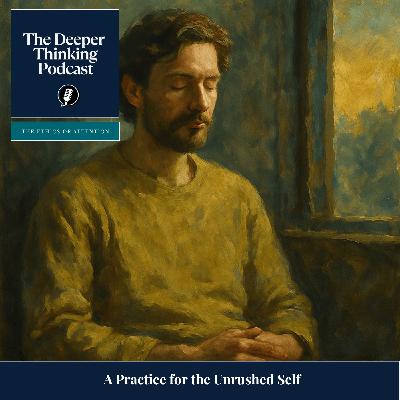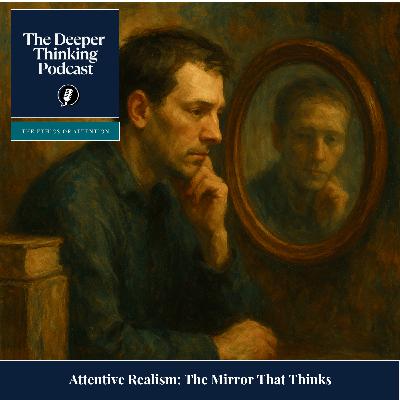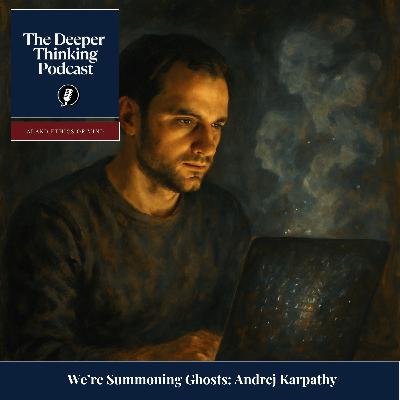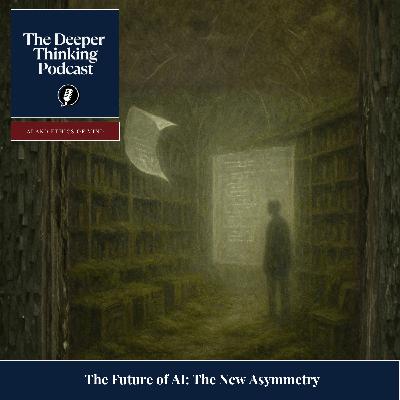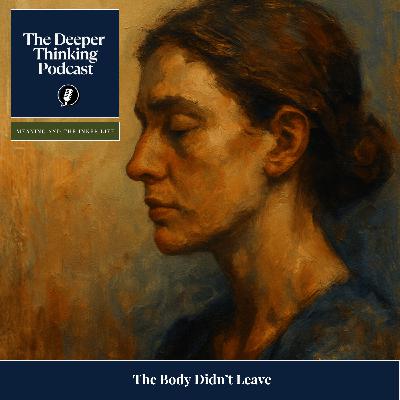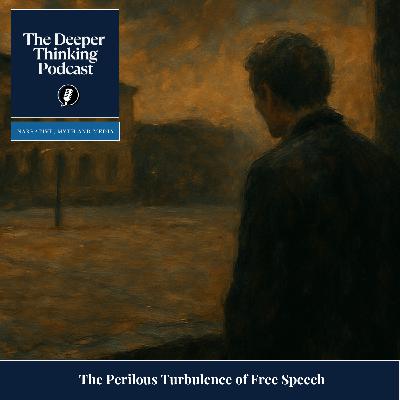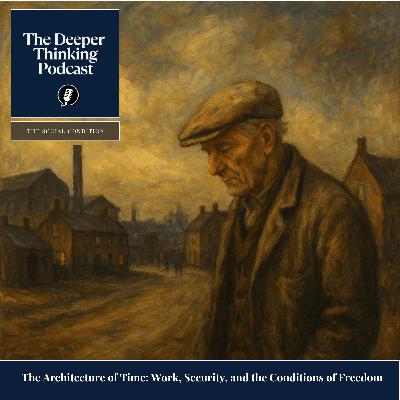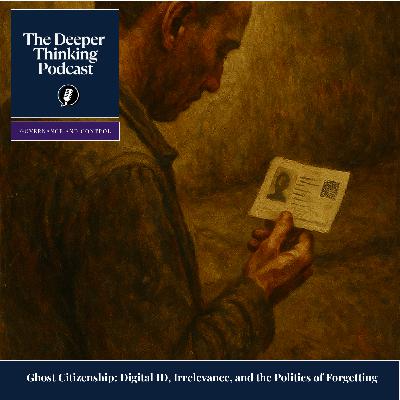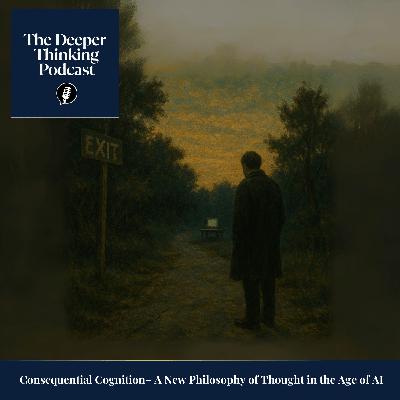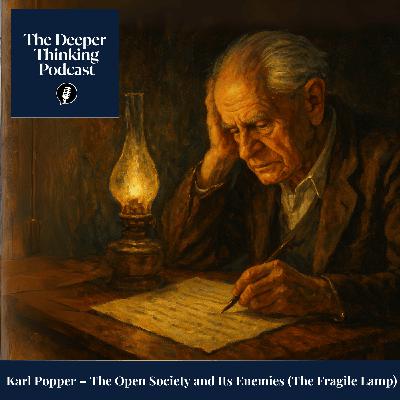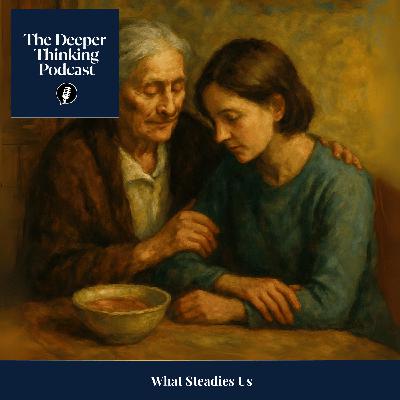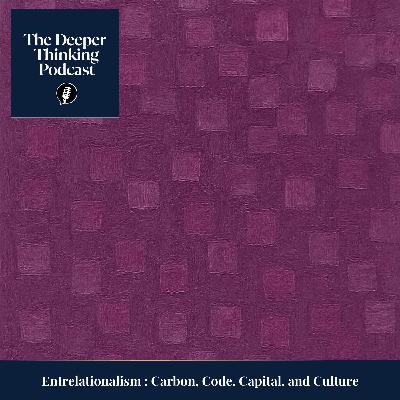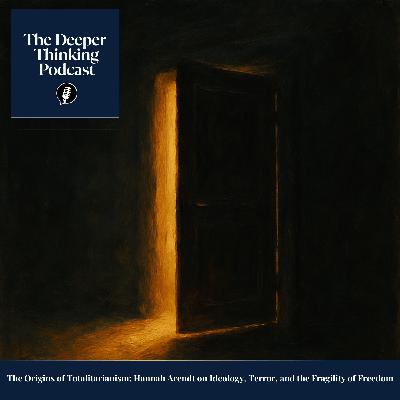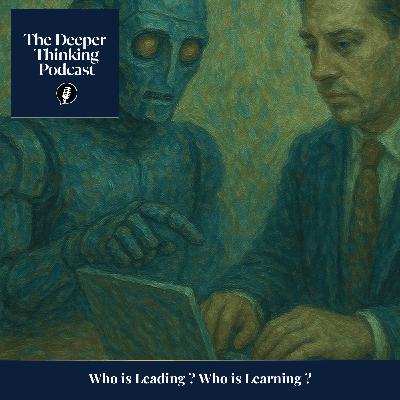Distortionism: The Crooked Horizon - The Deeper Thinking Podcast
Description
Distortionism: The Crooked Horizon
The Deeper Thinking Podcast is digitally narrated.
For those drawn to truth in resonance, the crooked paths of bias, and the wonder of living within illusion.
#Distortionism #DayCart #ImmanuelKant #FriedrichNietzsche #Buddhism #CognitiveBias #Postmodernism #Philosophy
What if distortion is not the fog but the lens itself? In this episode we introduce Distortionism, a new philosophy that argues we do not merely encounter bias—we are bias. Distortion is not a flaw in thought but the condition of thought. Drawing from Descartes, Immanuel Kant, Friedrich Nietzsche, Buddhism, and cognitive bias, we explore how illusion structures experience, politics, memory, and even theology.
This is not a call to cynicism. Distortion shelters us in grief, binds us in culture, and orients us in politics. The challenge is not to abolish it but to steward it—through humility, compassion, irony, discipline, and art. Theology, too, is reborn here as the crooked infinite: the awe of an unreachable horizon bending away as we approach.
We close with the myth of the Crooked Horizon, where Straight-Seeker, Nihilist, Iron Believer, and Wanderer each respond to the crooked path. Only the Wanderer accepts distortion, and by arranging it, endures.
Reflections
- Distortion is not an error—it is the condition of perception.
- Truth is resonance across crookedness, not purity beyond it.
- Bias cannot be abolished, but it can be arranged with care.
- Humility, irony, and compassion are practices of distortion’s stewardship.
- Theology becomes awe at the unreachable, bending horizon.
- Resonance is a landmark of reality, not its escape.
- The crooked staff guides further than the straight rule.
Why Listen?
- Encounter a brand-new philosophy that reframes truth, ethics, and theology for an age of misinformation.
- Learn how bias, illusion, and distortion are not enemies of thought but its ground.
- Discover practical ethics of navigating distortion, from institutions to daily life.
- Hear the parable of the Crooked Horizon, a modern myth
Listen On:
Support This Work - give me 5 stars on apple podcasts please.
If this episode stayed with you and you’d like to support the ongoing work, you can do so here: Buy Me a Coffee
Bibliography
- Descartes Meditations on First Philosophy. Paris: 1641..
- Immanuel Kant. Critique of Pure Reason. Riga: 1781.
- Friedrich Nietzsche. On the Genealogy of Morality. Leipzig: 1887.
- Buddhist texts on Māyā.
- Contemporary studies on cognitive bias and postmodern philosophy.
Bibliography Relevance
- Descartes: Sought clarity through methodical doubt, showing the pull of illusion’s undoing.
- Immanuel Kant: Demonstrated how the mind structures experience itself.
- Friedrich Nietzsche: Recast truth as perspectival, not absolute.
- Buddhism: Names illusion—māyā—as intrinsic to lived experience.
- Cognitive Bias: Maps distortion in contemporary psychology and decision-making.
- Postmodernism: Challenges purity of truth, offering multiplicity instead.
Truth is not what remains when distortions vanish. It is what resonates when crookedness is arranged with care.
#Distortionism #CrookedHorizon #Bias #PhilosophyOfTruth #Epistemology #PoliticalPhilosophy #MoralPhilosophy #Theology #PublicPhilosophy #Ethics #TheDeeperThinkingPodcast #Resonance #CognitiveBias #Postmodernism #Philosophy #ModernMyth
About
Philosophy has often imagined distortion as something to be peeled away, an illusion to be corrected, bias to be minimized, appearance to be overcome. From Descartes methodological doubt to Kant’s categories, from Nietzsche’s perspectivism to postmodern relativism, the tradition has oscillated between two poles: the hope of pure truth and the despair of radical illusion. Distortionism offers a third path. It asserts that distortion is not an occasional deviation but the constitutive condition of thought. We do not perceive truth distorted by bias; we inhabit distortion, which sometimes reveals truth. The crookedness of perception, memory, identity, society, and ritual is not a flaw but the very medium of human life. The question, then, is not how to abolish distortion but how to arrange it.
Genealogy and Divergence From Kant. Kant’s transcendental idealism argued that the categories of understanding structure experience universally and purely. Distortionism inherits the claim that thought structures reality, but denies universality and purity. Our categories are crooked, emotional, contingent, social, yielding orientation through convergence rather than certainty through universality. From Nietzsche. Nietzsche’s perspectivism declared that truth is merely a mobile army of metaphors, serving the will to power. Distortionism affirms perspectival crookedness but resists collapse into radical relativism. Truth is not abolished but reframed as resonance across difference: distortions that converge across stability, cross-contextuality, and fruitfulness yield landmarks of reality. From Buddhism. The Buddhist doctrines of māyā (illusion) and anattā (non-self) expose the constructedness of appearances and identity. Distortionism shares this insight but rejects escape from illusion as the goal. Liberation lies not in the end of crookedness but in the lucid navigation of it, a stewardship that makes life livable and meaningful. From Postmodernism. Postmodern critique deconstructs truth into social construction and power. Distortionism affirms the social nature of distortion but refuses paralysis. Not all distortions are equal: some collapse in echo, others endure as resonance. Against postmodern fragmentation, Distortionism offers orientation, ethics, and myth. From Cognitive Science. The catalog of biases (confirmation, anchoring, availability) demonstrates empirically the crookedness of cognition. Distortionism radicalizes this insight, elevating bias from flaw of heuristics to ontological condition. Cognitive science diagnoses; Distortionism systematizes.
The Architecture of Distortionism Ontology of Crookedness. Human beings are not rational animals but crooked animals. Distortion is the lens, not the dust upon it. Epistemology of Resonance. Truth arises not as purity but as resonance across distortions: stable, cross-contextual, and fruitful convergences that yield landmarks of orientation. Theology of the Crooked Infinite. The sacred persists as awe before the infinite bend. Rituals, myths, and prayers are distortions consciously lived, bending chaos into form and grief into meaning. Ethics of Stewardship. The task is not to abolish distortion but to arrange it wisely: humility, compassion, irony, discipline, and art, scaled into both private virtue and public institutions. Myth of the Crooked Horizon. The parable of travelers with crooked staffs provides the unifying narrative: the Straight-Seeker, Nihilist, Iron Believer, and Wanderer, each embodying possible responses to crookedness. Only the Wanderer endures, walking with crookedness toward the ever-receding horizon.
Conclusion Distortionism is not a commentary on existing systems but a system in its own right. It reframes ontology, epistemology, theology, ethics, and myth around the central claim that distortion is the condition of thought and life. Against the Enlightenment dream of purity, against Nietzschean perspectivism, against Buddhist escape, against postmodern paralysis, against cognitive reductionism, Distortionism offers a philosophy of crookedness adequate to our fractured age. It is a philosophy of humility and orientation, of sacred crookedness and shared myths, of institutions shaped not to eliminate bias but to steward it. It does not promise straightness; it promises endurance. And in an age bent by illusion, that crooked promise may be the only one that holds.

